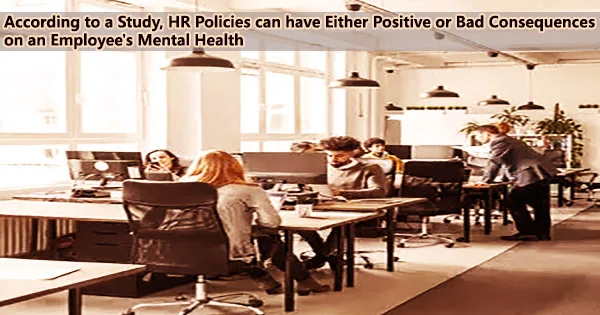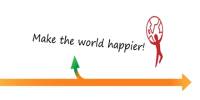According to some estimates, businesses lose nearly $1 trillion a year in productivity as a result of employees’ poor mental health, and this cost is only likely to increase. Employers’ efforts to address mental health issues may be having the opposite effect, though.
According to new research from Colorado State University’s College of Business, workplace services and initiatives meant to enhance employees’ mental health and, consequently, their performance and productivity, are not universally applicable.
According to the study, organizational identification, which refers to a person’s sense of belonging inside an organization or whether they believe it shares their values, determines how human resource strategies affect employees’ mental health.
“Organizations that have these types of practices are generally hoping to improve employees’ overall mental health,” said the management department’s Sherry Fu. “However, these practices can have negative effects on employees, even though their intention might not be to hurt employees.”
In “High Performance Work Systems and Employee Mental Health: The Roles of Psychological Empowerment, Work Role Overload, and Organizational Identification,” an article published in Human Resource Management, Fu and her co-authors examined the effect of high-performance work systems on employee mental health.
High performance work systems can both empower and overwhelm employees
A high-performance work system is a group of interconnected HR policies and practices. The article suggests that psychological empowerment or work-role overload are two ways in which these HR strategies may have an impact on employee mental health.
We found that people who have higher identification with the organization are less likely to suffer from the negative impact. Because they already identify with the organization, they tend not to interpret these policies as being exploitative. They’re also more likely to feel empowered and feel that their work has more meaning and enjoy the autonomy they have.
Sherry Fu
Four factors make up an employee’s feelings of psychological empowerment: a sense of meaning in one’s work role, self-determination in task completion, competency in one’s work role and the impact of one’s work.
On the other hand, work-role overload happens when employees believe they are being asked to do more with fewer resources. Workload overwhelm among employees increases the danger of mental tiredness, which over time could lead to issues with psychological well-being.
Take, for example, an initiative intended to give employees more autonomy. On paper, it might appear to benefit everyone, but in reality, employee reactions are probably going to vary. While some workers can feel inspired and motivated, others would feel overburdened and undersupported.
“Having too much autonomy and having to decide what to do and how to do it sometimes can be a burden, too,” Fu said. “Having too much of that can feel like you have a lot of responsibility to develop procedures instead of having someone explain the established procedures to you.”
A study of employees in South Korea
The researchers’ findings are based on a study of 999 employees across 174 South Korean organizations. Surveying employees at a wide variety of organizations was important because each has different policies and HR practices, Fu said.
“Because (co-author Kibok Baik) has a network in South Korea, he was able to recruit multiple organizations, and that’s beneficial in terms of making our findings more generalizable to more organizations,” she said.
During the study, participating employees were asked to complete a paper-and-pencil survey. It included questions on mental health, such as “Are there times at work when you feel so exasperated that you think to yourself that ‘life is all really too much effort?” and “Do you tend to feel restless and tense?” Participants were also asked to reply to questions about organizational identity, job-role overload, psychological empowerment, and high-performance work systems.
Overall, the study concluded that high performance work systems can have a beneficial or negative impact on employees and that a worker’s level of workplace identification matters.
“We found that people who have higher identification with the organization are less likely to suffer from the negative impact,” Fu said. “Because they already identify with the organization, they tend not to interpret these policies as being exploitative. They’re also more likely to feel empowered and feel that their work has more meaning and enjoy the autonomy they have.”
People who have lower identification with their workplaces, however, are more likely to experience negative effects from HR policies and practices.
What employers can do to help employees’ mental health
Long-standing research shows that when employees have mental health issues, their engagement, job happiness, absenteeism, turnover, and job performance frequently suffer. Amid a growing global mental health crisis, Fu and her co-authors’ research offers practical advice to employers and managers.
“We think that individuals do differ case by case,” Fu said. “One thing managers can do is really understand each of their employees themselves. They have different perceptions on what’s going on, and they have different interpretations of the policies and practices.”
“The researchers’ findings suggest that organizations should either recruit people with higher identification with the organization or work to improve how strongly employees identify with it,” Fu said.
“There are things that managers or organizations as a whole can do to really improve people’s feelings of belongingness and feelings of identification with their group or organization,” she said.
That can entail promoting employee interaction or providing more chances for new hires to form bonds.
“It’s not like you’re either an identifier or you’re not,” Fu said. “It’s always up to the things happening around you and the people around you to make you feel like this place is the right place.”
















